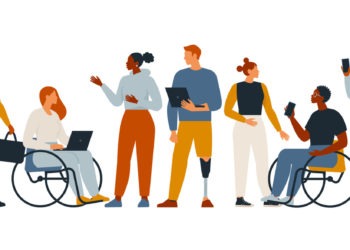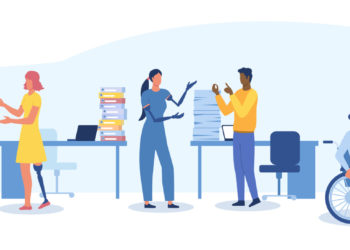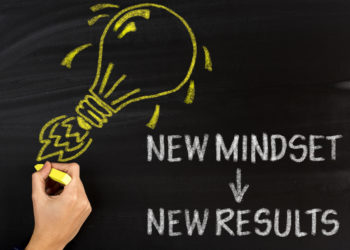This is the second of four posts on the DEI-focused sessions at the 43rd Society for Scholarly Publishing (SSP) Annual Meeting earlier this year. Each includes a session summary from one of the panelists, as well as reflections and responses from members of our community. Reflections that cover more than one session have been broken up and included with the relevant post. Each of the four posts will cover the sessions sequentially:
- Fighting Racial Inequity in the Publishing Industry, with a summary by Cason Lynley (who introduced Dr. Williams) and reflections by Miranda Walker, Steven D. Smith, George Neame, and Dana Compton
- The Glass Ceiling You Don’t Know About Yet, with a summary by Simon Holt and reflections by Hannah Vinchur, Georgie Field, Nicola Poser, Damita Snow, and George Neame
- Accelerating DEI: Have the Data? Use the Data!, with a summary by Susan Spilka that includes results from the Vital Signs survey and poll conducted before and at the conference by TBI Communications, as well as reflections by Nicola Poser and Michelle Urberg
- Retrogressing Research and Limiting Diversity, with a summary by Steph Pollock, and reflections by Sneha K. Rhode, Susan J. Harris, Timothy McAdoo, and Jiayn Wang
To keep the conversation going on these important topics, we invite you to add your thoughts to the comment thread.
The Glass Ceiling You Don’t Know About Yet
Session Summary
Simon Holt, Senior Publisher, Elsevier
My main takeaways from this session were:
- People with disabilities and long-term health conditions make up a substantial proportion of the workforce (approximately 15% of the working age population, according to the UN.) With 80% of disabilities not visible, it’s likely we all have worked with somebody with a disability without even knowing it
- There is no one ‘magic bullet’ that will make workplaces instantly disability-inclusive. A cultural shift has to evolve gradually, one conversation at a time — a good way to drive change is to ask people what they need
- The language we use every day is important — it can either actively include or accidentally exclude. It’s important to be clear about job requirements and avoid euphemisms in recruitment communications, so candidates can decide for themselves whether a role is right for them
Two recent Scholarly Kitchen posts provide more insights by the session’s speakers on disability inclusion in the publishing industry:
- Some Perspectives on Disability Disclosure in the Publishing Industry
- Job Hunting with an “Invisible” Disability: A Conversation
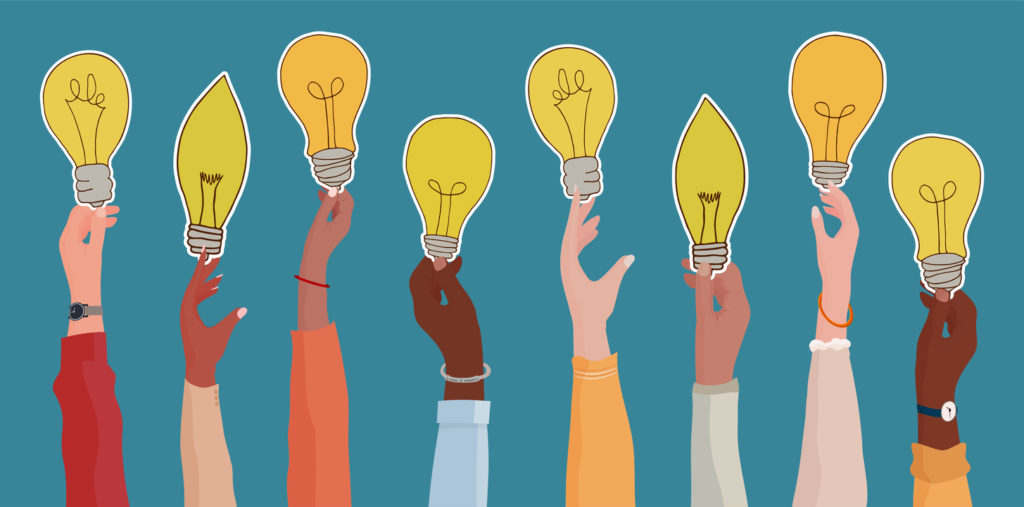
Community Reflections
Georgie Field, Associate Publisher, PLOS
My takeaway is that every individual has agency to impact disability equity and inclusion. This is particularly important for early career individuals and new managers, as advocating for themselves and others can be challenging. Individuals need to feel confident enough to come forward and say, ‘I need more from my organization’ or ‘we don’t have this right yet’, as those conversations and inquiries are what drives change. Acknowledging that everyone, at every organizational level, can effect change is an important first step, empowering people to step up to challenge inequitable systems and structures.
At PLOS, we are approaching DEI in two strands, via the culture we create within the organization, and by building out more equitable participation in scholarly publishing. There is much to learn and improve, but empowering each and every individual to join the conversation is a critical first step.
Nicola Poser, Director, Marketing & Sales, American Mathematical Society
Two questions [from this session] stood out to me: Do our online submission/reviewing/editing systems pose unnecessary hurdles to authors and reviewers? Does a culture of rigid work hours and “presenteeism” pose challenges to colleagues with health issues or caregiving responsibilities?
Damita Snow, Senior Manager, Publishing Technologies, American Society of Civil Engineers
There are many takeaways from this session that I can use immediately. For me, one of the most valuable points made was that you don’t determine your role as an ally. Ask how you can help and, if your help is needed, you will be told what you can do. An excellent newsletter, Better Allies, is very helpful to anyone looking for “everyday actions to create inclusive, engaging workplaces.” It is sent out weekly and you can download tips on how to support people from the global majority, examples of how to write image descriptions to inform people with vision difficulties, and more.
I found it so interesting that 50% of staff are dyslexic at NASA, an organization that.values the “superb problem-solving skills and excellent 3D and spatial awareness” that frequently accompany dyslexia. Hopefully other organizations will follow NASA’s lead. Interesting stuff! And a good reminder that we all have different abilities and ways of solving problems. There is more than one way to get to a desired result. All of the speakers provided helpful advice on how to understand and manage disabilities in the workplace. Because individual conditions and experiences vary, what may work for one person, may not work for others. Ask if you aren’t sure. Always ask!
After the session, I joined Publishing Enabled. While I may not encounter some of the issues that people with particular disabilities face, I wish to learn and to understand.
Hannah Vinchur, Editorial Associate, AAAS
Build on what already exists: An encouraging takeaway from this session is the idea that we can build on the already great work happening in other sections of DEI. In this way, we aren’t, as Simon said, “re-invent[ing] the wheel.” We are adjusting existing structures to work best for different needs. This provides a starting point and lead-in to further change.
Accidental vs. Actual Accessibility: I also found the discussion of accidental vs. actual accessibility enlightening. A good example is working from home, which offers flexibility and accommodations for people with mobility and other challenges. Because WFH is largely a pandemic work-around, rather than a deliberate act of accessibility, organizations need to make sure they are creating accessibility for the long-term, not relying on temporary by-products.
George Neame, Publishing Executive, BMJ
Simon Holt’s presentation on workplace barriers for people with disabilities highlighted that some employers only start to discuss the use of special equipment for people with disabilities once the employee has started the role, leaving a period of time in which they can’t begin work. It is not enough simply to have the technology to hand when requested, or to be able to prove that you can accommodate someone’s needs; what is instead required is a proactive discussion about the employee’s needs and to prepare to facilitate those in advance, in a process that’s distinct from the recruitment process. Action rather than reaction.

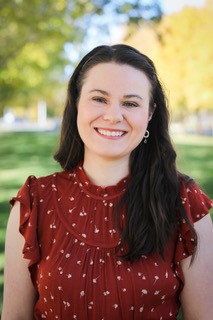
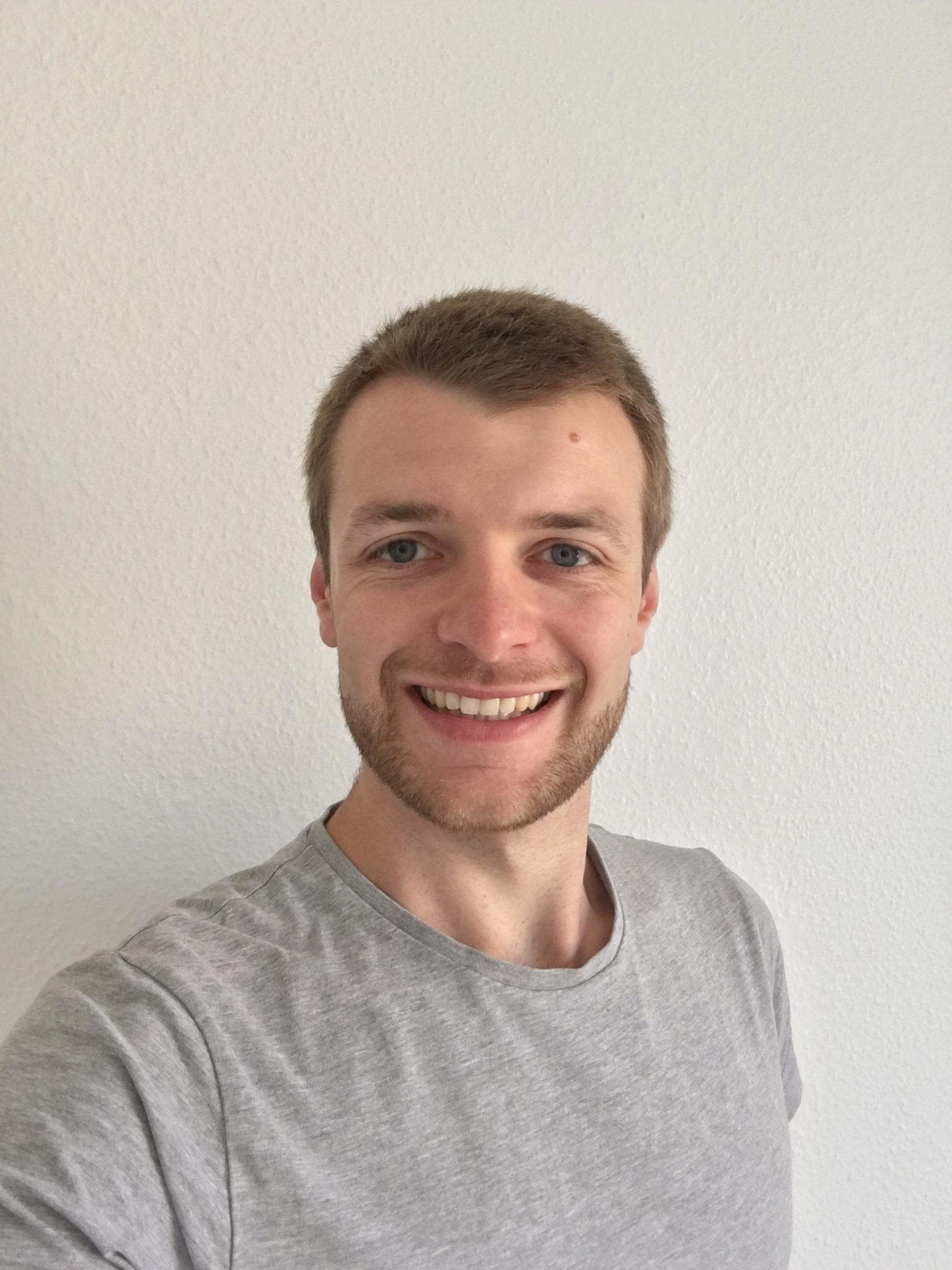
Discussion
2 Thoughts on "Community Reflections: Takeaways from the Diversity Sessions at SSP’s 43rd Annual Meeting, Part 2"
The statement that “50% of NASA employees are dyslexic” is widely circulated. It is based on a statement by advocate Dean Bragonier but is unverified. (See: https://thereadingadvicehub.com/struggling-readers-and-dyslexia/dyslexia/ and https://twitter.com/NASApeople/status/236144765098409984). As the scholarly communications librarian at an academic library, I am grateful that the SSP has given extensive and much needed attention to DEI issues in publishing, but as a parent of three dyslexic young adults, I am troubled by the perpetuation of rose-colored misinformation about how anyone with a disability reaches success.
Hi Beth – thanks for your comment, which is much appreciated. It’s a fine line, isn’t it, between empowerment and rose-tintedness (not a word, I know). With this session and the various pieces we have put together on these pages and elsewhere, the message we’re trying to put across is that people with a disability (PwD) are people capable of contributing to society and to the workforce, and that having a disability can give us skills that help us in the workplace, as well as cause challenges. I tend to find that the perception of PwD are quite binary – either superheroes or charity cases. The reality, is, of course, neither – I don’t want to be pitied because I can’t see, nor do I want to be acclaimed because I showed up to work of a morning. I think the point here is that PwD are a substantial part of the workiing population with skills that can contribute, rather than a small group of people to be left on the sidelines – hopefully that’s what ultimately comes across. Scholarly Commis is about integrity though, so thanks for pointing out about that stat – it’s much appreciated.
